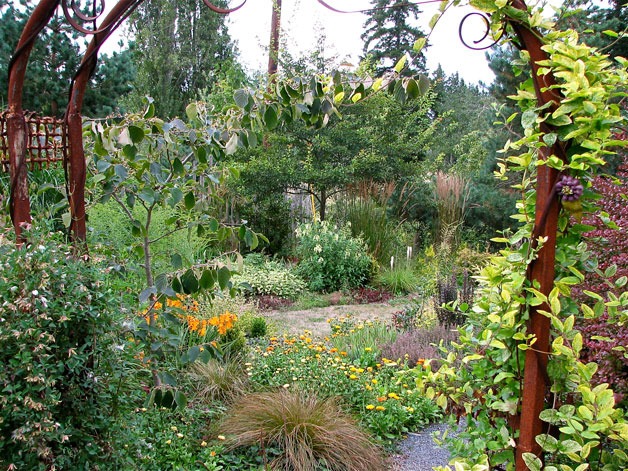Like many on Whidbey Island, wildlife biologist Russell Link admits that getting along with wildlife is a balancing act.
“While keeping the needs and behaviors of wildlife in mind, I’ve tried to design and manage our property to bring wildlife close in to view, photograph and study,” Link said.
“I’ve also had to defend against river otters and rats in the crawl space, and deer and rabbits in the garden and orchard,” he admitted.
Link will share his wildlife experience and insights Saturday, Feb. 5, when he teaches, “A Wildlife Watcher’s Landscape” at Sound Waters, the WSU Beach Watchers’ annual one-day university on the campus of South Whidbey High School. His class is one of 65 to be taught that day by 89 presenters.
Registration for Sound Waters opens Friday, Jan. 7 online here and continues through Friday, Jan. 28. The most popular classes fill fast, and many people mark their calendars to pounce on the opening day sign-up.
In recent years, Sound Waters has repeatedly sold out, with some 500 to 600 attendees converging on Coupeville Middle and High Schools. This year’s switch to South Whidbey High School provides a little more flexibility to accommodate the consistently high enrollment.
But back to Russell Link. The state wildlife biologist said it was his wife, Kathy, who found their Clinton home and saw the possibilities for the house.
“I saw a fixer-upper and lots of work, but also a lovely property with possibilities for wildlife-related projects.” One of those projects was to invite more bats onto the property.
Currently, Link is building a combination tool shed/chicken coop/greenhouse.
“I’m looking for ways to include one of my large bat houses on the structure to help control the codling moth problem on my apple trees. Bats eat a lot of moths.
I have four bat houses on the property, and all have been occupied by either small groups of male or large groups of female bats, or maternity colonies.”
Link said people who live in a heavy forest setting are not likely to be successful in attracting bats to a bat house or butterflies to a shady perennial border. But they can landscape in a way that will enable them to attract and provide shelter to forest birds, chipmunks and native squirrels.
When it comes to wildlife, Link is the go-to guy in Washington. He is the author of two definitive books packed with photography and illustrations, “Living with Wildlife in the Pacific Northwest” and “Landscaping for Wildlife in the Pacific Northwest,” published by the University of Washington Press in cooperation with the Washington Department of Wildlife. He is an expert on some 68 species of mammals, birds, reptiles and amphibians found in Washington; their feeding habits, safe viewing techniques, trapping methods, legal status, public health concerns and more.
Sound Waters attendees pay $40 to register for the day’s classes, plus $7.50 for an optional box lunch. Registration covers the keynote speech plus any three classes from among some 65, running the gamut from kayaking to orcas, earthquakes, boating, fishing, climate change, oil spills, native plants, farming, fly fishing, glaciers, home energy, jellyfish, bird photography, tide pools, septic systems, wild mushrooms, wind power and woodpeckers.
This year’s keynote speaker will be Dr. Rick Keil of the University of Washington.
Keil and his students, with the help of SoundCitizen, track several benign substances that reveal the daily activities of humans as they impact local waters. The community-based water sampling network studies fun compounds such as cooking spices, and also more serious ones, such as emerging pollutants.
Sound Waters snapshot
When: 9 a.m. to 4:30 p.m. Saturday, Feb. 5.
Where: South Whidbey High School, Langley.
Cost: $40 for keynote plus any three classes ($7.50 optional box lunch).
Register: Online, starting Friday, Jan. 7 through Friday, Jan. 28 here or call WSU Extension at 360-679-7327.



